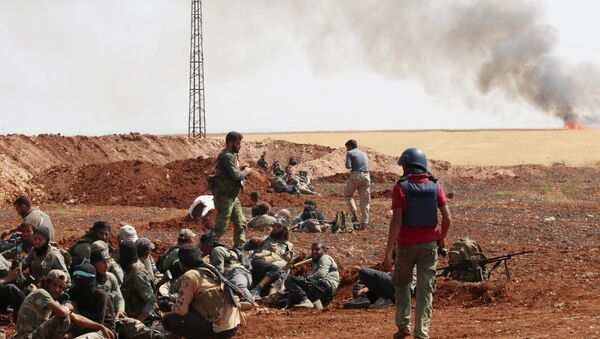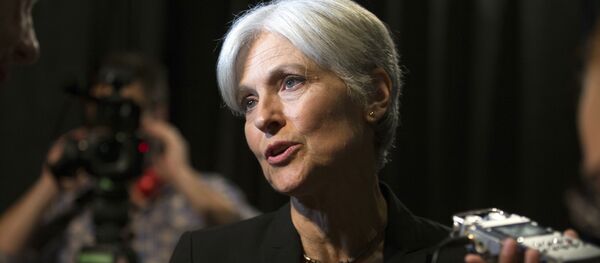The program was central to former US President Barack Obama's policy in Syria, which sought to topple Syrian President Bashar Assad. According to the report, Trump took the decision nearly a month ago, after an Oval Office meeting with CIA Director Mike Pompeo and national security adviser H.R. McMaster.
Trump had already decided to end support for Syrian rebels before his meeting with Russian President Vladimir Putin on July 7, at which the US and Russia agreed on a ceasefire deal in southwest Syria. Last week, Trump said that the US and Russia are working on another ceasefire deal "in a very rough part of Syria."
Trump's change of policy is recognition that after more than six years of war, the policy of regime change in Syria has clearly failed, Russian political commentator Ilya Kharlamov told Radio Sputnik.
"If this information is correct, then Washington is acting in a reasonable and measured way. Under Barack Obama, support for the opposition, which was engaged in armed conflict with the legitimate government in Damascus, became one of the main problems in Russia-US relations with regard to Syria."
"At the same time, this support was a powerful stimulus for the continuation of conflict. Now, in theory, a lot can change for the better," Kharlamov wrote.
"Moreover, just like some key European politicians, the White House no longer sees removing Bashar Assad from power at any cost as its main policy. In fact, such a scenario would mean the ultimate collapse of Syria and the loss of national sovereignty."
"However, it's too soon to start celebrating," Kharlamov warned.
"Trump's decision to end the CIA's anti-Assad program – to repeat, if it really goes ahead – will automatically mean a new round of political crisis in the US and accusations against Trump. He has already been reproached for making 'concessions' to Russia, which has indeed been calling for an end to support for the radical armed opposition for several years."
"I would basically like to say that we welcome any steps aimed at defusing the situation and strengthening of security in the Middle Eastern region," Russian Foreign Ministry spokesman Arytom Kozhin told a briefing on Thursday.
Former Obama administration members have admitted that the program, which was touted as support for "moderate" Syrian rebels, in fact ended up supporting militant Islamists.
"We certainly questioned it all the time, when the direction of the war really started changing, especially when Russia got in, these fighters were pushed to work with the most capable group on the ground, which was Nusrah [al-Nusra Front]," a former senior defense official under the Obama administration told US News.





